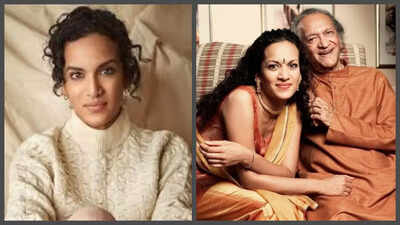Anoushka Shankar reveals how losing dad Ravi Shankar and Nirbhaya case helped her break silence on sexual abuse: ‘When you carry a big wound like that…’ |

In a deeply personal and powerful revelation, Anoushka Shankar has opened up about the convergence of grief and outrage that led her to break her silence on sexual abuse. Speaking with journalist Barkha Dutt on Mojo Story, the acclaimed sitarist reflected on the emotional storm she faced in December 2012—coping with the death of her father, the legendary Pandit Ravi Shankar, while the nation reeled from the brutal Nirbhaya gang rape. Just five days after the loss of her father, the nation was shaken by the Nirbhaya gang rape in Delhi—a tragedy that left a lasting impact on Anoushka. The two events, though separate, became deeply intertwined in her memory. She described it as a time of overwhelming grief and chaos—mourning the death of her father and guru, navigating the Grammy season, and processing the horror of Nirbhaya’s assault. For Anoushka, the personal and the political merged into one emotional reckoning that would alter her forever.She described that period as a “trauma bubble”—an intense mix of grief, rage, and emotional upheaval that blurred the lines between personal loss and collective outrage. The Nirbhaya case, she noted, sparked a global outcry unlike anything she had seen before. For the first time in her memory, the world was united in discussing a single incident of sexual violence. To her, it wasn’t just a tragedy—it was a moment, a rare opportunity to speak out and be heard.It was in the midst of this emotional upheaval that the sitarist found the strength to speak publicly about her own experience with sexual abuse. She reflected on how the perception of her life as “charmed” often felt at odds with the pain she carried in silence. Living with a hidden wound, she said, created a deep disconnect between how others saw her and the reality of her inner world—one that she could no longer keep hidden.Anoushka also reflected on how her father’s passing gave her the emotional freedom to share her story more openly. While he had known about her experience, she admitted that the thought of causing him pain had held her back. With his absence, that emotional barrier faded, allowing her to speak her truth without the weight of how it might affect him. In many ways, his passing created the space she needed to finally reclaim her voice.She also pointed to the role of class in shaping the public response to the Nirbhaya case. She suggested that the incident may have gained such widespread attention partly because the victim came from a middle-class background. This, she noted, highlighted a troubling misconception—that sexual violence is tied to class. The narrative, she said, revealed just how deeply flawed public perceptions remain about who can be affected by such trauma.





